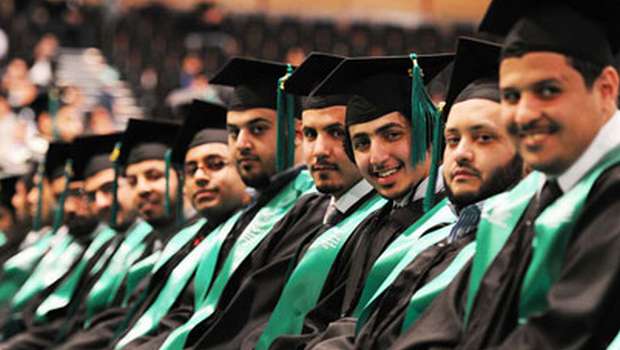University education in Saudi Arabia is not monopolized by Saudi universities; the Kingdom sends missions to many of the distinguished universities of the Middle East and the world. Saudi Arabia has made the right decision in establishing domestic universities and specialized colleges under the auspices of both the Ministry of Higher Education and the National Commission for Academic Accreditation and Assessment. This policy paves the way for intellectual competition and contributes to the development of university education, specifically with regard to the type and quality of academic programs and the adoption of modern educational practices. This experiment has been a success, and I am hopeful more prestigious international universities will enter the Saudi market. I do not think there is anything to prevent cooperation between Saudi universities and foreign ones, and I do not think there is anything keeping foreign universities from working independently in Saudi Arabia. But the issue is not one of what is allowed or not allowed; it is one of the costs of running these universities, which are very high in the Kingdom.
Universities are also deterred from entering Saudi Arabia by a slew of administrative bureaucracy and regulatory controls—for example, conditions for academic accreditation. Additionally, the process of obtaining official licenses is difficult, but it is necessary for the purchase of tracts of land large enough for a university. Purchasing land is in itself an extremely expensive undertaking, both in terms of flat cost and in terms of foreign investment taxes. Now add to that the administrative costs of operation and management. Regulations require a university president as well as deans for each college, 70 percent of whom must be full-time employees. Regulations also require a certain number of foreign professors in light of the substantial lack of homegrown doctorate holders. The government treats universities and university staff in the same way it treats employees in any other institution. There is no exception just because they are lacking in faculty members. But in order to obtain visas for guest lecturers, there are months-long bureaucratic procedures to wade through. I do not think any reputable international university would risk its reputation trying to overcome these obstacles.
Due to the economic challenge of running a university, foreign universities will be unlikely to accept government interference in setting prices for their services and wages for their employees. British or American universities are not subject to this sort of interference in any other countries, which respect this issue because they know that if they attempt to interfere they will push students to other universities. That is why I propose two potential solutions. First, we allow an exception in the case of these international universities, similar to that of the King Abdullah University of Science and Technology. I believe the tax exemptions they are granted capture the philosophy that education is not a form of commerce and must be a means of developing and sharing knowledge among peoples. The second solution before us is to allow cooperation between the leading universities of the world and some select Saudi universities. Keep in mind that many international universities weigh this decision primarily in economic terms. This is why the government has offered some international universities astronomical sums just for the right to use their name in Saudi universities.
Thus, while I am not against the presence of foreign universities and colleges in the Kingdom, I would like to give due credit to the government’s universities, which put Saudi Arabia on the educational map. But emerging private universities have also proven able to compete with foreign universities and to provide quality educational programs in English. So, I tip my hat to the Minster of Higher Education Dr. Khalid Al-Ankary, who led private college education to this level and provided the support necessary for private Saudi universities to occupy a prestigious place on the international stage.
The counterpoint to this article can be read here.
